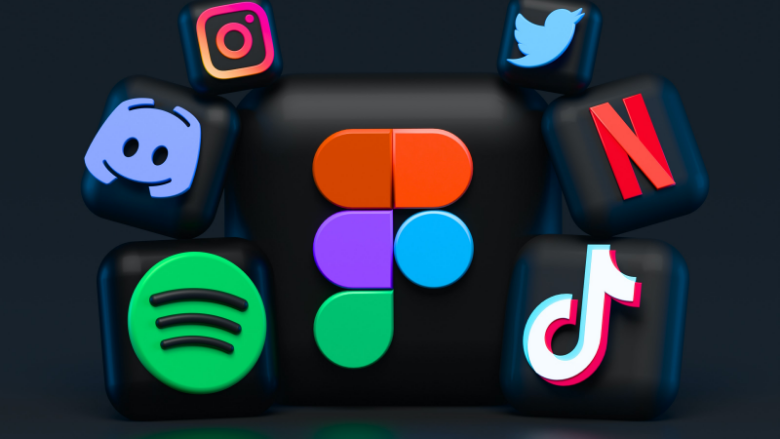To curb the endless swearing between celebrity fans on social media, the Cyberspace Administration of China has announced its annual campaign to regulate the behaviour of fans groups online. What really needs to happen to stop abusive behaviour on Chinese social media?
It was already early in the morning, but Qing Guo was still tossing and turning in her bed, the pillow was wet with tears, the insulting words in her private messages on Weibo were like sharp swords that stabbed and caused her in pain.
Her finger swiped on the ‘Log out’ screen, this Weibo account had been operated for about three years and had more than 15,000 followers. The place that once brought her freedom of speech and happiness was now the cause of her continuous insomnia.
“I just wanted to stop the chaos on Weibo, but I became a traitor and a person without conscience from some fans’ perspective,” said Qing Guo, who used to be a super fan of a Chinese idol and a key opinion leader in the online fan community.
“But he did not deserve the love of so many fans at all,” said Qing Guo. “He treated beautiful and rich female fans differently from normal fans, fell in love with underage girls but cheated on others at the same time, he did not take performance seriously,” she added. After these scandals were reported by the media, Qing Guo was very disappointed and decided to leave the fan circle.
However, there were still many fans who insist that their favourite idol did nothing wrong, the media was framing him deliberately. They argued with the users who criticized the celebrity on Weibo, abused and even conducted human flesh searches on these users.

“They threatened or intimidated those users with the private information that obtained through irregular methods. They didn’t even realize that their actions have broken the law, and they were still gloating that they have avenged their favourite idol,” said Qing Guo.
To dissuade these crazy fans, Qing Guo used her identity as a super fan to post her insights about all the irresponsible things made by their favourite idol.
She wrote a long post on her Weibo to appeal to the fans who followed her for stopping irrational cyber abuse. “Maybe it’s not him as a person that we liked, but a well-crafted and perfect persona. He was just a bad guy with a good appearance. Hope that after this experience, he can really be a responsible man,” wrote Qing Guo.
This post received more than 50 comments, some people expressed their support for Qing Guo, but at the same time, some fans were very angry at the content of this post.
“At first, I just tried to remind fans don’t to over obsess about this idol and stop them from making insults at other people on Weibo. But then what I said on Weibo will be misinterpreted, the friends who supported the same idol with me also started to blame me,” added Qing Guo. Unlike the previous verbal abuse from strangers on Weibo, this was the first time that she received abusive expressions from friends.
After this incident, Qing Guo even began to doubt herself. “Did I really do something wrong? But I just stated the facts and urged people to stop the online abuse. The current situation of Weibo is that many fans simply can’t listen to the opinion that is slightly different from their thoughts,” said Qing Guo. To some extent, the aggressive online behaviour of the fan circles is depriving the right to express opinions freely on social media of many people.
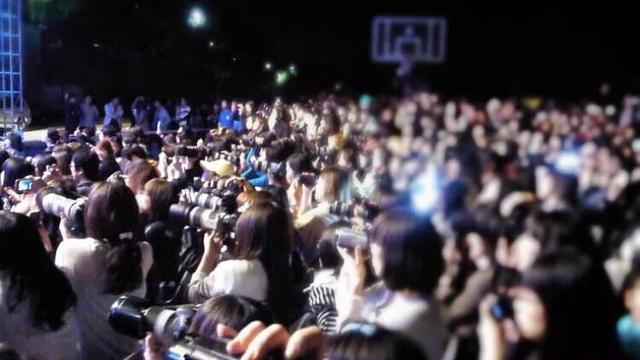
In fact, the cyber abuse caused by some fans and other misconduct such as illegal fundraising and making up fake data had been noticed by the Chinese government for a long time.
The “Qing Lang” operation, which was led by the Cyberspace Administration of China (CAC), has been conducted since 2020 and focused on cleaning up the illegal online behaviour that affected the physical and mental health of youth.
Through this campaign, the CAC cooperated with other departments to criticize and warn more than 150 websites, including some big companies such as Weibo, Baidu and Douyu, shut down about 14,000 illegal websites and nearly 6 million accounts.
However, the achievements of this campaign in 2020 lasted only a few months. In 2021, with the play of a talent show “Youth With You 3”, the atmosphere of the online fan communities took a sharp turn. The bad behaviours such as insulting each other, illegal fundraising and data falsification reappeared.
In order to help their supported trainees to get a higher grade, fans bought milk drinks offered by the show’s sponsor in large quantities to get extra votes. But they were unable to drink all of those drinks, so the milk was poured down to the drain in big buckets.
This kind of aberrant fans behaviour was posted on Weibo and drew the attention of government departments again, the programme “Youth With You 3” was taken off the air, and a new round of “Qing Lang” operation began again.
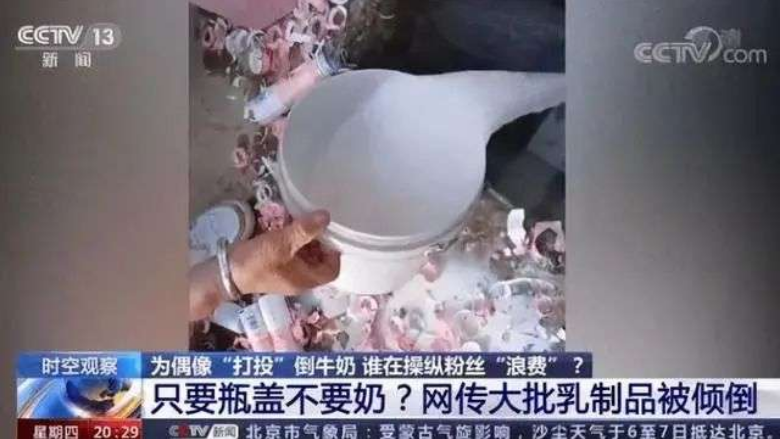
This time, the campaign targeted not only the online fan communities but also the celebrities themselves and social media platforms.
In May, the famous Chinese actress Shuang Zheng was reported about abandoning two babies that were born by illegal surrogacy abroad. Immediately all the TV shows, movies, variety shows and commercials that she appeared in were taken off the air.
The government departments and organizations such as the China Association of Performing Arts also spoke out through Weibo and other social media platforms to criticize Zheng’s action seriously. They also stated that they would refuse to offer any opportunity that may allow her to become a celebrity again.
In addition to stoping the career life of the celebrities without morality, the “Qing Lang” operation also pointed out that the artist agencies or teams need to be responsible for guiding fans’ online behaviour properly. Social platforms had to ban or close the accounts of agencies and fan groups that cause online abuse incidents.
As one of the leading social media platforms in China, Weibo, which has a similar function to Twitter, has become a platform for celebrities to show their perfect persona and business value. According to the official data from Weibo, about 95% of Chinese celebrities have opened their own Weibo accounts.
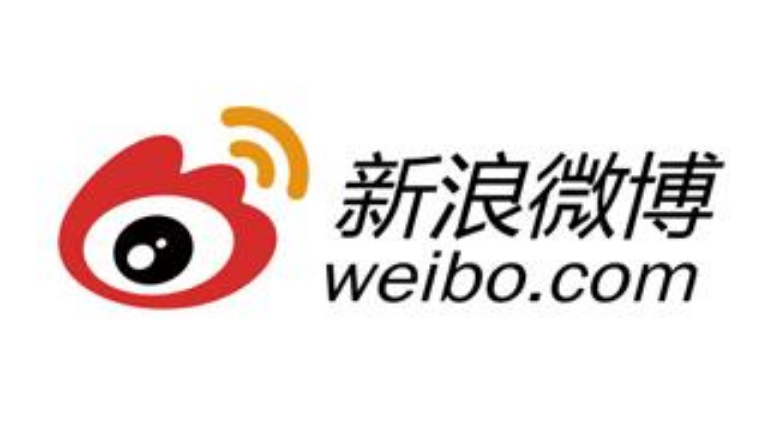
Celebrities and their teams put much effort into Weibo not only because it is a platform to communicate with their fans, but also because it is closely related to their income.
“When the brands look for a spokesperson, especially those who are eager to increase their sales, one important consideration for them is the strong purchasing power of the celebrity fans. They will go to social platforms such as Weibo to investigate the public image of the artist and the number of followers,” said Xia Zhang, who was working in an entertainment agency for many years.
“Once there was an artist endorsed a product, the products were sold out within five minutes after starting to sell. That was a luxury item which will cost thousands of yuan,” added Xia Zhang. That’s why some celebrities’ endorsement fees are higher than others, for these celebrities with strong influence on Weibo and the purchasing power of their fans.
For social platforms, such as Sina Weibo, the deep partnerships with celebrities and entertainment companies have also brought them a lot of revenue. Since 2015, Weibo has launched many celebrity-related charts, to develop online fan communities and increase user stickiness through the activities such as voting for their supported idols, these changes reversed the losses that began in 2011.
But at the same time, these charts have also bred a lot of friction and severe competition between different fan communities. In August, under the supervision of the “Qing Lang” operation, Weibo announced to cancel the charts that need fans to vote such as “Celebrity Power Charts”.
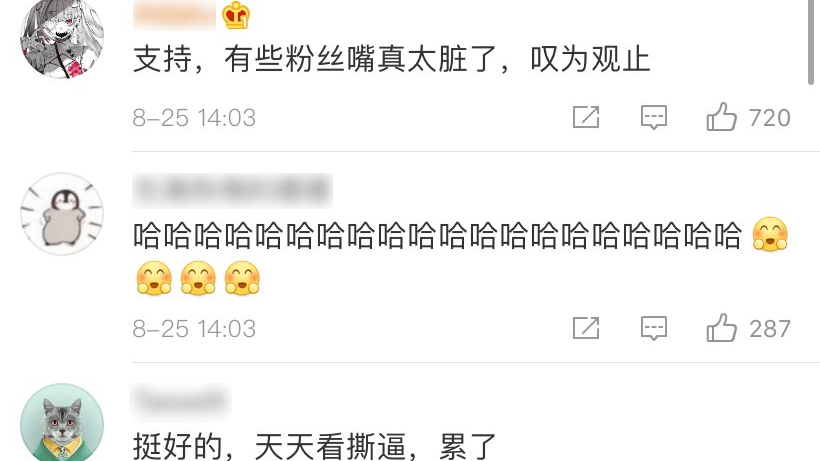
“I felt much more relaxed,” said Qing Guo. During the ”Qing Lang” campaign, all fans and artists began to control their speech and actions voluntarily, no one will force her to vote or spend money on celebrity anymore. “But how long will the results of this campaign last?” added Qing Guo.
“Fan community is an organization that can gather crowds instantly on the internet and is the most complete and efficient youth self-organization. However, when self-organization like fan community has other demands, it may create uncontrollable situations,” said Cencen Hu, the tutor of Beijing Sport University.
The “community” is crucial in the growth of people, but in China, this generation of young people was missing a bit in this part. The fan circles made up for this lack to some extent.
So, if the online fan groups want to abandon abusive behaviour such as swearing completely, they still need positive guidance from the government and society.
